The Latin term imago Dei is one that I first heard in a college Bible study. I remember sprawling on the floor of our dorm lobby, rolling the funny words around in my mouth.
Imago Dei. Image of God.
That phrase has meant a lot to me over the years. It has helped me understand my own value as a child created in the image of God, and more recently, it has helped me to understand more deeply the idea of dignity. Because truly believing that every human, every man, woman and child from every nation, is created in the image of God shifts how we think about dignity. Value of life.
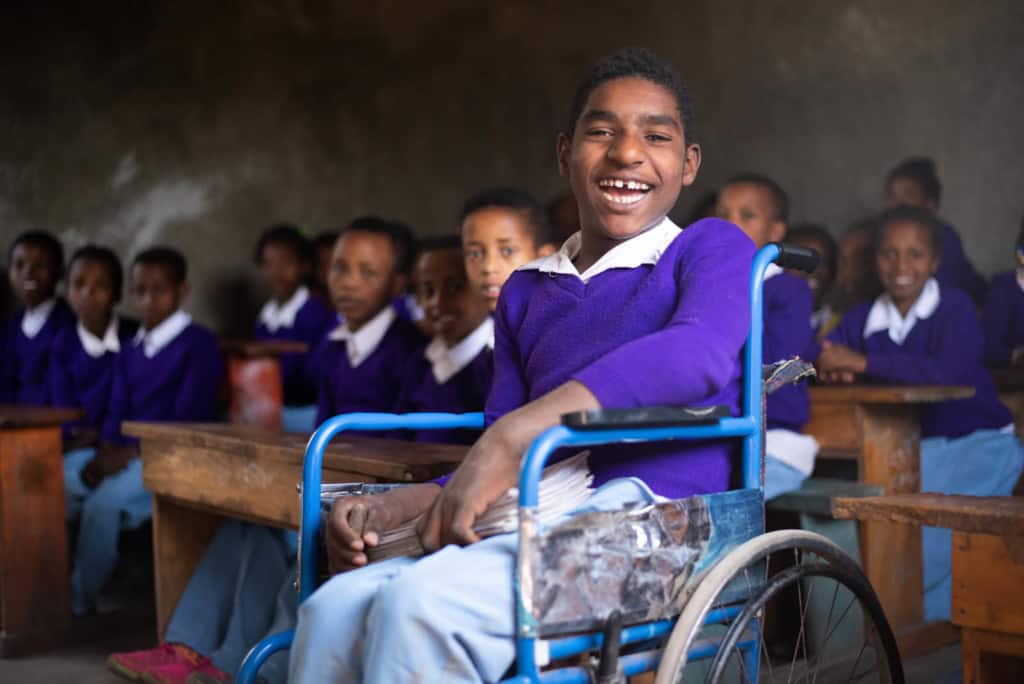
It shapes how I think about the children I sponsor, too. Denys, Bilha, Vitoria, Nardos and Natacha were all created in the image of God. What does that mean for me, as their sponsor?
For an organization that works in 25 developing countries, each with its own cultures, languages and customs, it is so important to see the imago Dei in every church and child we work with. Simply put, we must always make sure we are honoring a child’s dignity.
Can you write a blog about child dignity?
When Compassion’s blog editor, Willow, asked me that question, of course I said yes. But then, immediately, I knew what I needed to write about. And I didn’t want to. I didn’t want to share a moment with you that I’m not proud of.
But I hope you can learn from my mistakes as you think about what child dignity means for you.
When I went on my first Compassion trip, I kept having to pinch myself. Was this really my life? Getting to travel and meet Compassion-assisted families and share their stories?
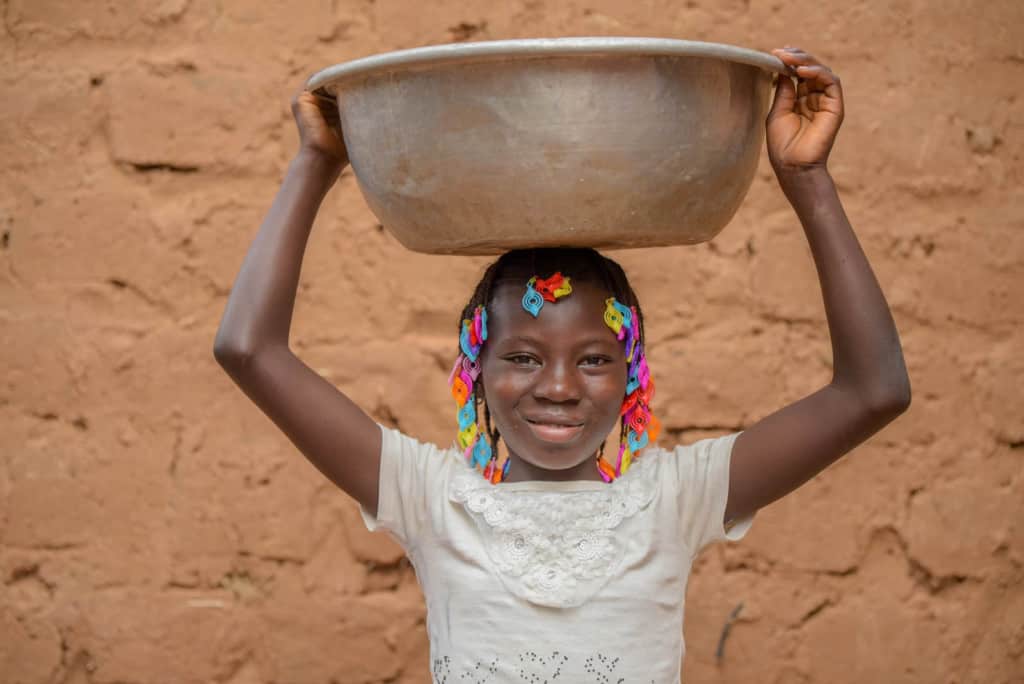
On every trip I reveled in experiencing new cultures and playing with adorable kids. Everywhere I went I had a camera in my hand (yes, that was back when I used a camera and not my phone), and my notebook in my pocket.
I took selfies with tons of kids. Kids that I connected with. But also — kids that were just cute. That’s what happened on a trip to Bolivia. I smiled eagerly at a little girl, pointed to my camera, and then to her. I ignored her confused look and started snapping away. Later, I looked at those photos, and saw a look of … could that be fear on her face?
And as I stared at that photo, I felt a deep, deep conviction. I was treating those children as props.
It makes my stomach hurt even now to think about. And from that moment on, I made a promise, both to myself and to the hundreds of children I would meet on future trips.
I would not take a single picture with another child whose name and story I did not know. While there’s nothing wrong with taking photos to help remember a one-of-a-kind trip to meet sponsored children, my conviction had to do more with my intentions and motivations. It is not my job as a writer at Compassion to take pictures with cute kids from around the world. It is my job to listen to their stories, and gently carry those stories home to share with those who need to hear them.
But even more than that, it is not my job as a Compassion sponsor to “rescue” poor little children. It is my job to help the helpers, to come alongside their parents, tutors and Compassion staff who are doing the hard work.
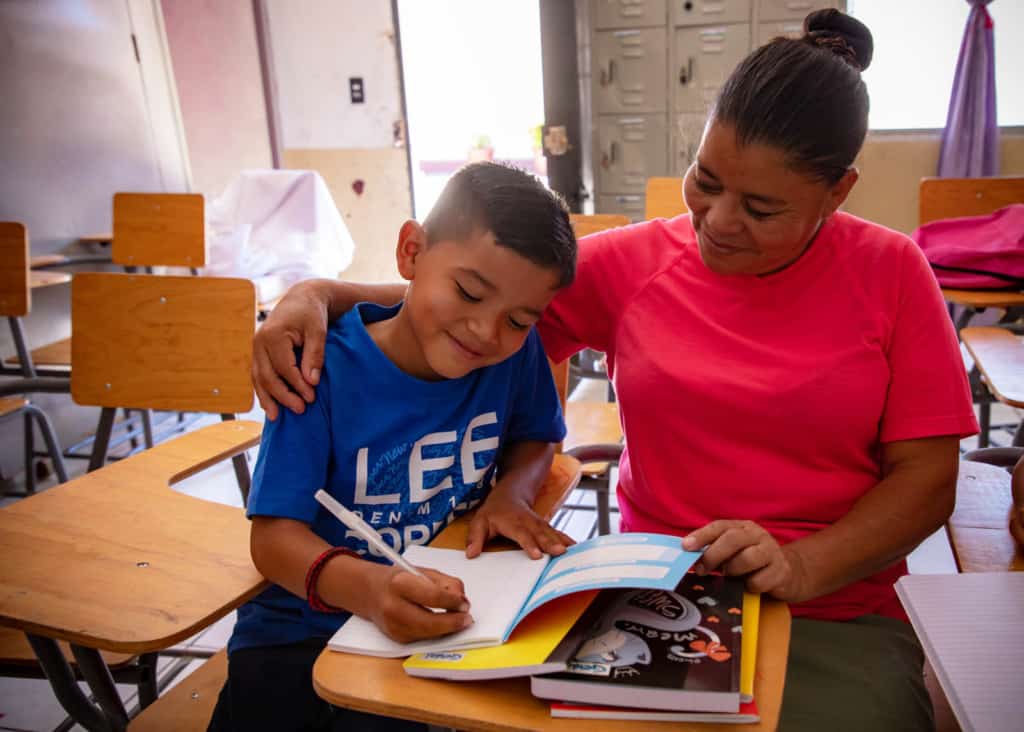
It is not my job to have a rich, shared correspondence with a child in poverty. It is my job to write letters of hope and encouragement even if the only response I get is the same picture of a hand-drawn ball 10 times in a row.
It is not my job to be my sponsored child’s family. Most Compassion-assisted children have loving, devoted caregivers, siblings, aunts and uncles. My job is to be a part of their family, a faraway friend who is helping to ease the burden.
It is a joy and a privilege to be a part of my Compassion children’s lives. And my life is so much richer having them in my life.
They are not props. They are real children, with real stories and real families.
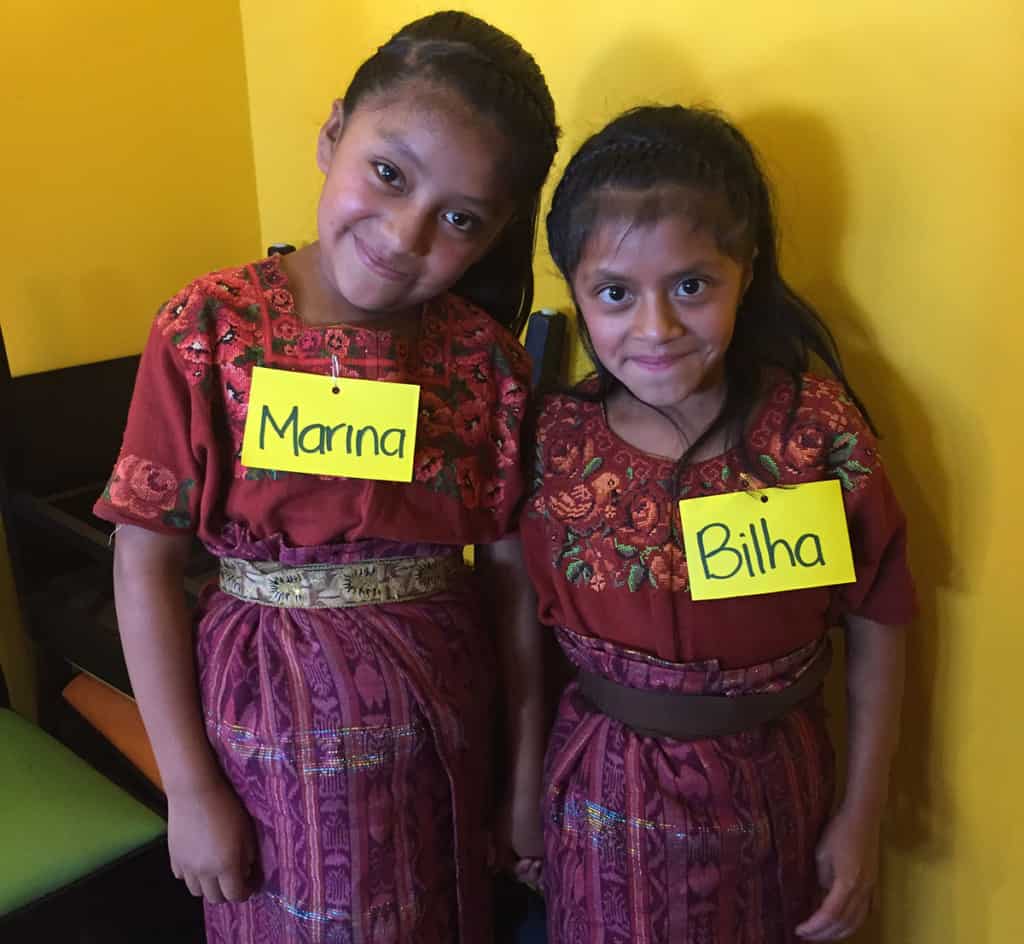
Helping the Helpers
In an honest moment, I think at times I have elevated my role in my sponsored children’s lives. I have lost sight of the fact that their lives are FILLED with people created in the image of God, who are called to love and serve in ways that are different than mine.
As a sponsor, I am helping to equip local, Indigenous churches, run by people who live in the communities and know the unique needs of the people who live there. These are people who know what dignity looks like in their cultures. Who understand the language of dignity among the children they serve.
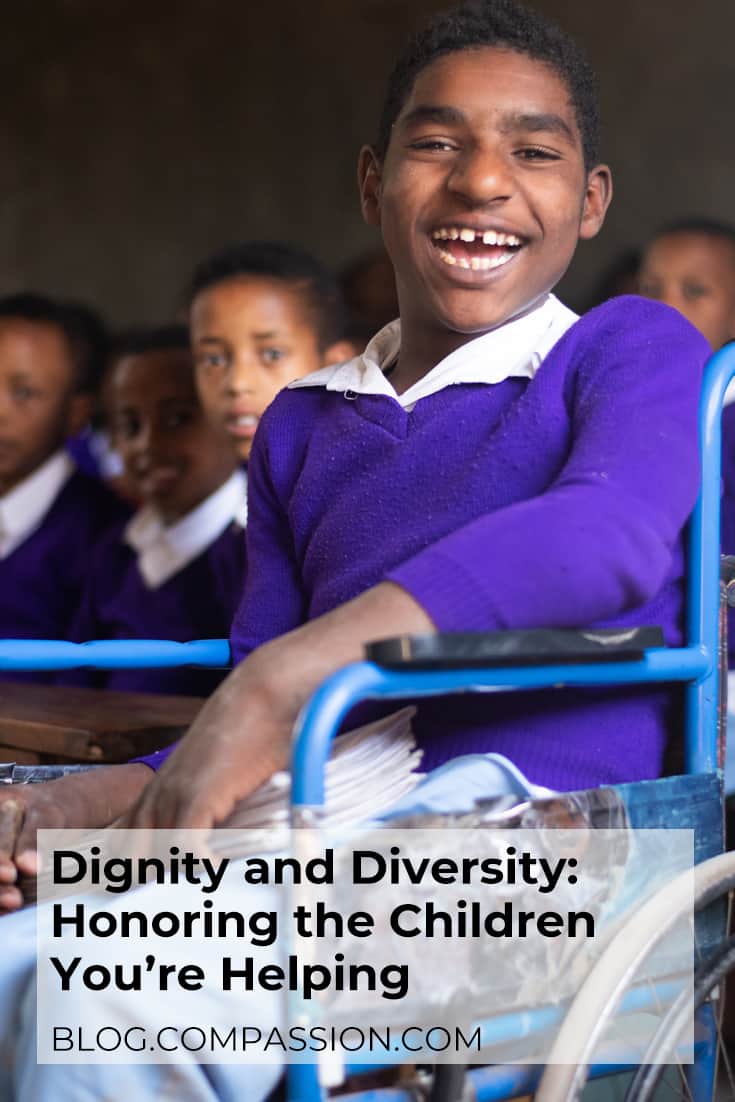







9 Comments |Add a comment
What a beautiful perspective! If the kids only knew how much they enrich our lives. They bring a whole new world to us, and challenge our ideas about standards of life. I have a co-worker from Brazil who once told me that most Americans cannot even grasp what real poverty is. Immediate access to safe, clean water, free education available to all, our rights and freedoms – we have so much to be grateful for!
How have I not seen this post before today…more than a year after it was written? Thank you for this! This was convicting! Guilty! Thank you again! I also appreciate all of the other comments! Thank you everyone!
Helping kids to embrace diversity begins with helping them to understand the universal values of human dignity, equal value, and respect.
This is such a helpful post. Thank you and thank you for your willingness to be transparent. ❤❤
Thank you for another meaningful message, Brandy! On our trip to Uganda, our leaders shared this advice with us from the start–children are not props for photos, but people with powerful stories. Such a simple concept, but so easy to overlook when you don’t look beyond their smiles and take time to connect with them. I journaled about the children I met who asked to be photographed with me. Now when I show those pictures, I am able to share their stories and inspire others to become sponsors themselves.
Hello Mike, thank you for the impact you made on all those children you got to visit in Uganda! We appreciate the time and care you put into remembering each child’s powerful story. ??~Taryn
This article is inspiring – and perhaps one that all new sponsors should read. As a sponsor for over 25 years, I have never really heard this unique outlook on sponsoring. It needs to be heard, because all too often sponsors simply do not not what their role will be. It is about much more than money, and much less than money. Thank you!
Wow! Such an inspiring story. What really stood out for me is that as a sponsor, we should never elevate ourselves in the lives of the children/beneficiaries. We are just vessels used by God to channel His blessings. May God help us to see the bigger picture?
Thank you for writing this post — and with such vulnerability! I think a big organization like Compassion using its influence to have this conversation is so important for creating change in the nonprofit sector.